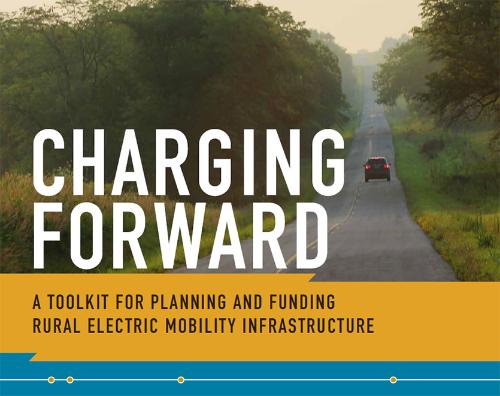- Home
- Administration
- Aeronautics
- Business with WYDOT
- Construction Projects
- Driver License and Records
- Economic Stimulus Projects (ARRA - TIGER)
- Engineering and Technical Programs
- Fuel Tax
- Highway Safety
- Human Resources
- Manuals and Publications
- News and Information
- Permits
- Planning/Projects/Research
- Titles, Plates and Registration
- Travel
- Trucking / Commercial Vehicles
- Vehicle Business Regulation
- Wyoming Highway Patrol
- Search
- Sitemap
Other Electric Vehicle Charging Grants
Other Electric Vehicle Charging Grants
The Infrastructure Investment and Jobs Act (IIJA) also created direct-to-user grants not managed by federal or state agencies. The aspects of these grants include a competitive program to deploy publicly accessible EV fueling infrastructure.
Any current funding opportunities will be listed on this page, check back frequently for updates.
For more information, contact WYDOT.
Feds announce second round of CFI grant opportunity
The Federal Highway Administration announced a Notice of Funding Opportunity today for the second round of the Charging and Fueling Infrastructure program grant.
This competitive federal grant aims to "strategically deploy publicly accessible electric vehicle charging and alternative fueling infrastructure."
The grant is divided to two categories:
- Community Charging and Fueling Grants (Community Program) - a great opportunity for communities that don't qualify for NEVI funding at this time
- Alternative Fuel Corridor Grants (Corridor Program) - as a reminder, the AFCs in Wyoming are the three interstates: I-25, I-80 and I-90
NOTE: Eligible applicants include governmental agencies like
- a state or political subdivision of a state
- a metropolitan planning organization
- a unit of local government
- a special purpose district or public authority with a transportation function, including a port authority
- an Indian tribe
- a territory of the United States
- an authority, agency, or instrumentality of, or an entity owned by, one or more entities described above
- a group of entities described above
- (For Community Program grants only - a state or local authority with ownership of publicly accessible transportation facilities is also eligible)
Private industry would need to partner with a governmental entity to be considered.
To review the NOFO and program requirements, click here: https://grants.gov/search-results-detail/354602
To learn more about the CFI program, click here: https://www.fhwa.dot.gov/environment/cfi/
FHWA is hosting two webinars about the CFI program to answer questions and provide more information:
- Charging and Fueling Infrastructure Grant NOFO Overview - Thursday, June 6, 2024, 2:00 - 3:30pm ET (click this hyperlink to register)
- CFI NOFO Overview: Reconsideration of Round 1 Applications - Tuesday, June 11, 2024, 1:00 - 1:30pm ET (click this hyperlink to register - this one isn't as applicable to first time applicants)
Applications are due before Aug. 28, 2024.
US DOT compiles "Charging Forward: A Toolkit for Planning and Funding Rural Electric Mobility Infrastructure"

This toolkit is intended for a variety of rural stakeholders, including States, local communities, Tribes, transportation providers, nonprofits, businesses, and individuals.
The toolkit focuses on infrastructure for light-duty electric passenger vehicles (such as sedans, sport utility vehicles, and pickup trucks), but also addresses funding opportunities and planning considerations for other types of electric vehicles, including transit and school buses, medium- and heavy-duty vehicles, and agricultural equipment such as tractors.
To access both the web-based or PDF versions of the kit, click here.
This toolkit covers the stages of EV infrastructure development in the following sections:
- Electric Vehicle Basics
- Benefits and Challenges of Rural Vehicle Electrification
- Partnership Opportunities
- EV Infrastructure Planning for Rural Areas
- EV Infrastructure Funding and Financing for Rural Areas
- Resources for EV Infrastructure Planning
- Environmental Statutes and Executive Orders








